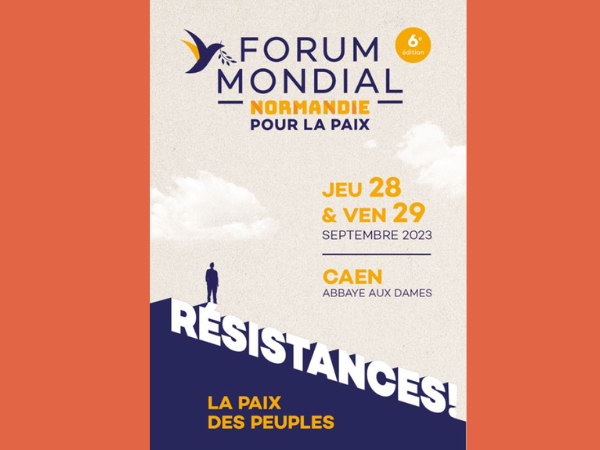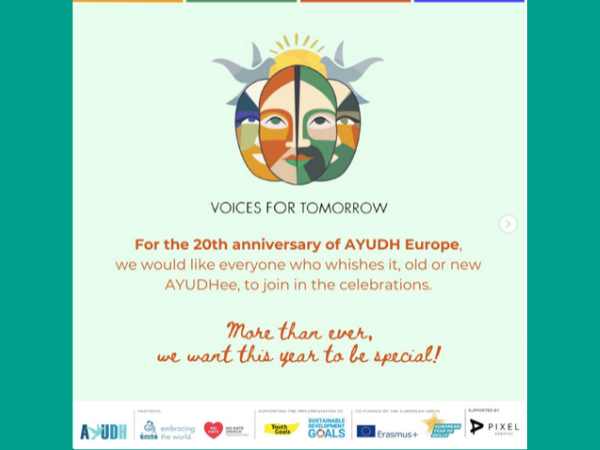Women facing new international challenges...
Paris, April 9th, 2025

Key Takeaways from CSW69
New York, March 10-21, 2025
of UN Women
Amid a tense geopolitical and economic climate, the 69th session of the Commission on the Status of Women (CSW69) was held from March 10 to 21 at the United Nations headquarters in New York.
Let us not forget: advancing women’s rights is advancing society as a whole.

Notable progress
Member states shared their progress and reaffirmed their commitment to the goals of the Beijing Declaration.
Several African and Asian countries highlighted with supporting statistics a decrease in maternal mortality rates, a reduction in child marriages, and improved access to education and the workforce.
New policies and laws, particularly those condemning discrimination and violence against women, along with the establishment of social protection measures, have been instrumental in driving change.
Several member states also emphasized that fostering more inclusive and equitable societies has contributed to strengthening peace in their countries.
An important margin for improvement
However, the goals have still not been met. Each day, 800 women die from preventable causes, mostly in low- or middle-income countries. One in three women will experience violence at some point in their lifetime, and the number of women living in poverty is significantly higher (+22 million) than that of men.
Despite their growing participation in the global economy and their essential role in society, women continue to be excluded from power and bear the consequences of decisions made unilaterally by men.
 Organizations in Brazil, Pakistan, and Indonesia highlighted their local efforts to provide women with training and support to help them engage politically.
Organizations in Brazil, Pakistan, and Indonesia highlighted their local efforts to provide women with training and support to help them engage politically.
Yet, they remain underrepresented in decision-making due to cultural barriers, violence—online harassment, disinformation, physical assaults—and laws often manipulated by a male-dominated political landscape.
Access to healthcare is a fundamental human right that promotes economic growth and sustainable peace.  However, significant disparities persist. Women and girls are more affected by the HIV epidemic. In Sub-Saharan Africa, they represent the majority of new infections, mainly due to sexual violence.
However, significant disparities persist. Women and girls are more affected by the HIV epidemic. In Sub-Saharan Africa, they represent the majority of new infections, mainly due to sexual violence.
Addressing these inequities requires innovative solutions, such as using technology to connect remote communities, adopting social medicine, and empowering girls through education.
Indeed, education remains a key element for structural change.
Grassroots organizations across Africa are making remarkable strides in providing water and assistance to families so that girls can attend school. However, poverty and violence continue to force many of them to prematurely abandon school and their studies.
New Challenges
- The change in U.S. policy
 The U.S. representative confirmed a shift in policy, delivering a speech focused on combating illegal immigration and what was described as extreme, radical gender ideology, framing these issues as the primary threats to women. Additionally, funding for many programs has become an increasing concern, with the UN facing a persistent cash shortage and the cessation of USAID support. Meanwhile, the needs have grown substantially, particularly in conflict zones such as Ukraine, Syria, Gaza, Yemen, and Sudan. Powerful and heartfelt speeches were delivered by representatives from these regions. The devastating impact is evident, with an increase in early marriages, rising mortality rates, and an alarming rise in violence against women. It is urgent to build local systems designed with a data-driven, women-centered approach to improve the effectiveness of aid. Youth representatives urgently called for more action, concrete solutions, and less rhetoric.
The U.S. representative confirmed a shift in policy, delivering a speech focused on combating illegal immigration and what was described as extreme, radical gender ideology, framing these issues as the primary threats to women. Additionally, funding for many programs has become an increasing concern, with the UN facing a persistent cash shortage and the cessation of USAID support. Meanwhile, the needs have grown substantially, particularly in conflict zones such as Ukraine, Syria, Gaza, Yemen, and Sudan. Powerful and heartfelt speeches were delivered by representatives from these regions. The devastating impact is evident, with an increase in early marriages, rising mortality rates, and an alarming rise in violence against women. It is urgent to build local systems designed with a data-driven, women-centered approach to improve the effectiveness of aid. Youth representatives urgently called for more action, concrete solutions, and less rhetoric.
- The Digital Revolution and Artificial Intelligence
 Certainly, bridging the digital divide by ensuring access to technology and education is crucial for empowering women and girls. But, although these technologies present valuable opportunities, they also come with risks : thus, online harassment and sexual exploitation have increased significantly in recent years.
Certainly, bridging the digital divide by ensuring access to technology and education is crucial for empowering women and girls. But, although these technologies present valuable opportunities, they also come with risks : thus, online harassment and sexual exploitation have increased significantly in recent years.
Paths for improvement
 In response, the Beijing+30 Action Agenda revised six goals to accelerate progress and fulfill the vision of the Beijing Declaration and Platform for Action: digital revolution, poverty reduction, zero violence, equal decision-making power, peace and security, and climate justice.
In response, the Beijing+30 Action Agenda revised six goals to accelerate progress and fulfill the vision of the Beijing Declaration and Platform for Action: digital revolution, poverty reduction, zero violence, equal decision-making power, peace and security, and climate justice.
Other proposals were discussed, such as implementing a rigorous process for verifying and measuring progress, diversifying summit locations to enable broader participation (since current cost and visa restrictions limit the attendance of some organizations), ensuring long-term and sustainable funding, increasing civil society participation in decision-making processes, and establishing a flexible approach to address emergencies.
 After two intense weeks, the closing ceremony left a lasting impression: the U.S. representative emphasized that the United States no longer supports the Sustainable Development Goals (SDGs) and will not take further measures to combat climate change.
After two intense weeks, the closing ceremony left a lasting impression: the U.S. representative emphasized that the United States no longer supports the Sustainable Development Goals (SDGs) and will not take further measures to combat climate change.
Ms. Sima Bahous, Executive Director of UN Women, delivered a powerful closing speech, underscoring that the Beijing Declaration remains a critical framework for international cooperation on gender equality. She stressed that the fight for women’s rights is more urgent than ever, noting that no country has fully achieved the goals set, and gender equality remains an ongoing challenge, with a real risk of regression.
However, hope is not lost. At the conclusion of the summit, we witnessed historic milestones: ![]() the International Olympic Committee (IOC) elected its first female president, (Kirsty Coventry);
the International Olympic Committee (IOC) elected its first female president, (Kirsty Coventry);  Namibia appointed its first female president, (Netumbo Nandi-Ndaitwah);
Namibia appointed its first female president, (Netumbo Nandi-Ndaitwah);  and Tunisia named a female Prime Minister for the second time in its history, (Sarra Zaafrani-Zenzri).
and Tunisia named a female Prime Minister for the second time in its history, (Sarra Zaafrani-Zenzri).
Additionally, we celebrate the record attendance of 5,845 NGO representatives at the 69th edition of the summit !

Want to join the movement?
☞ To make a donation
>> click on the link below:
Make a donation
Or send a cheque
made out to
“Les Amis du Projet Imagine”
Le Projet Imagine – 4 rue Saint-Saëns – 75015 Paris – France
Your generosity is key to support our mission.
Founded in 2010 by journalist Frédérique Bedos, the NGO of information « Le Projet Imagine » aims to create a movement of citizen commitment with a view to a more inclusive and sustainable society.
Convinced that everyone can activate their power to make the world a better place, it raises public awareness through inspiring films and involves the public in action-oriented programs that are in line with the Sustainable Development Goals as defined by the United Nations.These programs are deployed in schools and increasingly in companies, cities and prisons.
Since 2017 « Le Projet Imagine » is officially recognized by the United Nations.


